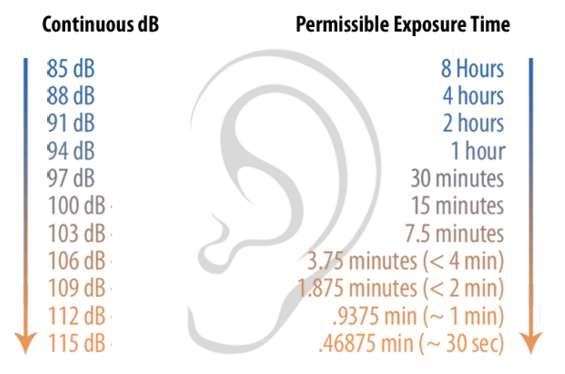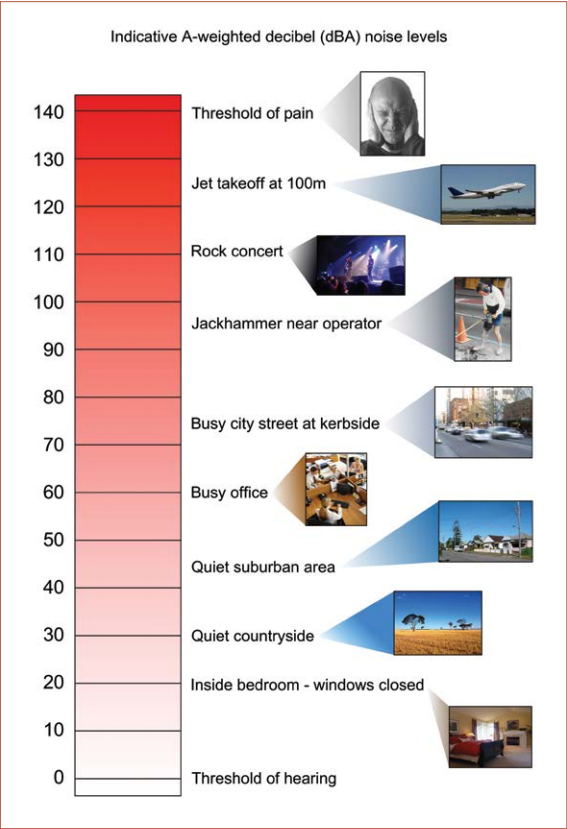International Noise Awareness Day
The cochlea is made up of microscopic sensory cells (called hair cells) that bend in the fluid of the cochlea with incoming sound vibrations. These hair cells can become damaged or disappear when exposed to noise. This is worse the longer the noise exposure occurs. One-off exposures to extremely high levels of impulse sound, such as the sound of a gunshot, can cause instantaneous damage to your hearing.
Noise exposure can be industrial noise or leisure sounds such as listening to music. Industry standards indicate that safe exposure to noise is 85 decibels for 8 hours. For every 3 decibels louder, the safe exposure time is halved. So, for 88 decibels, it is safe for 4 hours; for 91 decibels, it is safe for 2 hours; for 4 decibels it is safe for 1 hour. And so on. By the time you are exposed to 100 decibels of noise, it is only safe for 15 mins.


That is why noise protection is so important. It may not eliminate the sound totally but may lower it enough that it is at safe levels. For example, if you have noise plugs that attenuate or reduce the sound by 20dB and you are listening to music at 100dB, the ear plugs will limit the decibel level to 80dB which you can listen to safely for 8 hours. The National Acoustics Laboratory has more information on safe noise levels. Hearing Resources – Know Your Noise (nal.gov.au)
Ways to protect your hearing:
- Limit your output on your phone.
- Limit your exposure time to loud sounds.
- Use noise cancelling headphones if listening to music/podcasts in noisy places as this can prevent you turning up the music too loud to be heard.
- Remove yourself from exposure to loud sounds.
- Wear noise-attenuating headphones when you use loud power tools or equipment.
Please remember that noise damage is caused by the amount of exposure time as well as the loudness of the sound. Noise damage is also cumulative; it all adds up over time. Noise damage is permanent; once your hearing is damaged, it cannot be reversed. Most importantly, noise damage is entirely preventable.
Catherine Kwok
Principal Audiologist
Shout Hearing Healthcare
